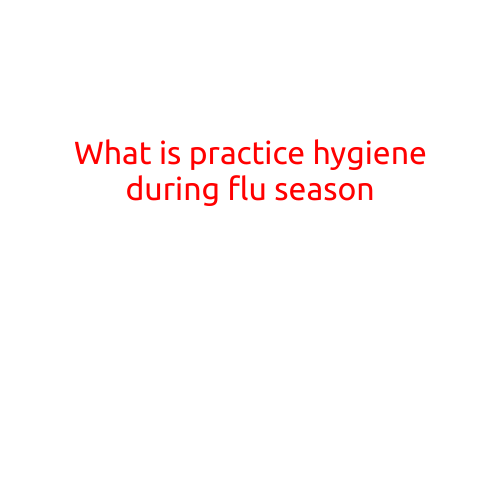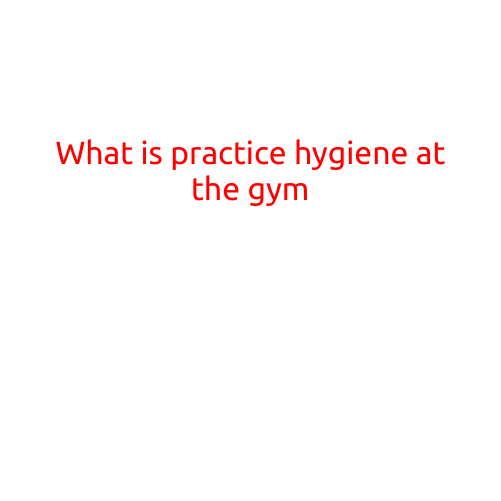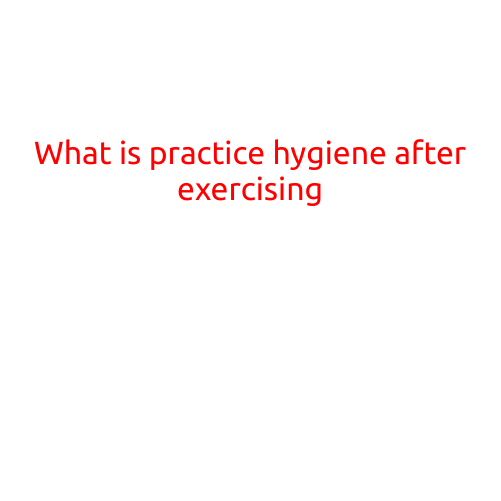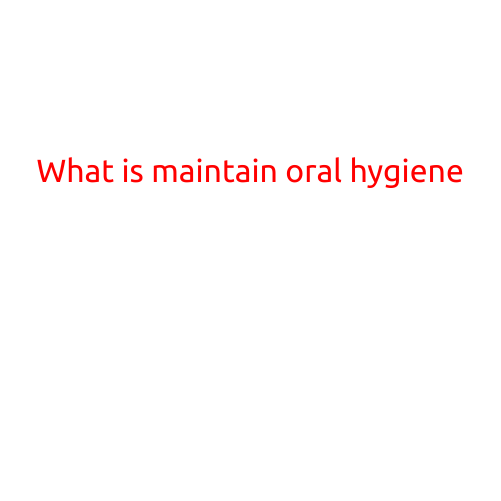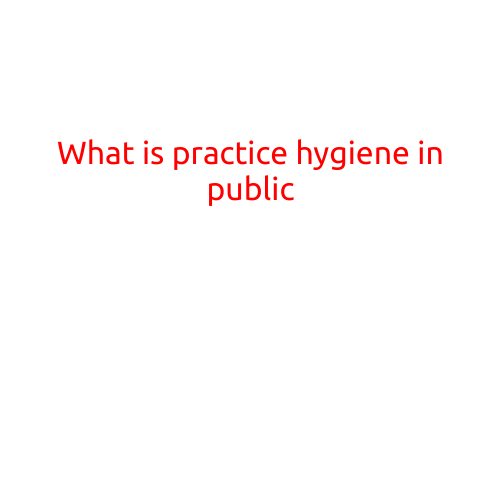
What is Practicing Hygiene in Public?
Practicing hygiene in public is an essential part of maintaining good health and preventing the spread of illnesses. In a world where germs and viruses are always present, it’s crucial to take steps to reduce the risk of infection. In this article, we’ll explore what it means to practice hygiene in public and provide some simple yet effective tips to help you do so.
Why is Practicing Hygiene in Public Important?
Practicing hygiene in public is important for several reasons:
- Prevents the Spread of Illnesses: Infections such as the common cold, flu, and gastroenteritis can spread quickly in public places. Practicing hygiene in public helps to prevent the spread of these illnesses, protecting not only yourself but also those around you.
- Protects Vulnerable Individuals: Certain individuals, such as the elderly, young children, and people with compromised immune systems, are more susceptible to illness. Practicing hygiene in public can help protect these vulnerable individuals from infection.
- Maintains Good Health: Good hygiene habits can help maintain good overall health, reducing the risk of chronic diseases such as respiratory illnesses, urinary tract infections, and skin infections.
Simple Hygiene Practices to Follow in Public
- Wash Your Hands Regularly: Wash your hands with soap and water for at least 20 seconds, especially after using the bathroom, before eating, and after blowing your nose, coughing or sneezing.
- Use Hand Sanitizer: When soap and water are not available, use hand sanitizer with at least 60% alcohol to disinfect your hands.
- Cover Your Mouth and Nose: When coughing or sneezing, use a tissue or the inside of your elbow to cover your mouth and nose. Avoid touching your face.
- Avoid Touching Your Face: Try to avoid touching your face, especially your eyes, nose, and mouth, as this can transfer germs from your hands to your face.
- Clean and Disinfect High-Touch Surfaces: Regularly clean and disinfect high-touch surfaces, such as doorknobs, elevator buttons, and public restrooms, with a disinfectant solution.
- Avoid Close Contact with Others: Avoid close contact with others, such as shaking hands, hugging, or kissing, especially if you’re not feeling well.
- Keep Personal Items Clean: Keep personal items, such as your phone, wallet, and keys, clean and away from your mouth and face.
Additional Tips to Stay Hygienic in Public
- Stay Home When Sick: If you’re feeling ill, stay home and avoid public places to prevent the spread of illness.
- Carry Hand Sanitizer and Tissues: Always carry hand sanitizer and tissues with you, especially when you’re in public.
- Avoid Sharing Food and Drinks: Avoid sharing food and drinks with others, as this can spread illness.
- Use a Nose and Mouth Cover: When in crowded areas, use a nose and mouth cover to prevent spreading germs.
Conclusion
Practicing hygiene in public is a simple yet important step in maintaining good health and preventing the spread of illnesses. By following these simple hygiene practices, you can help protect yourself and those around you from infection. Remember, good hygiene habits are essential for a healthy and safe public environment.
